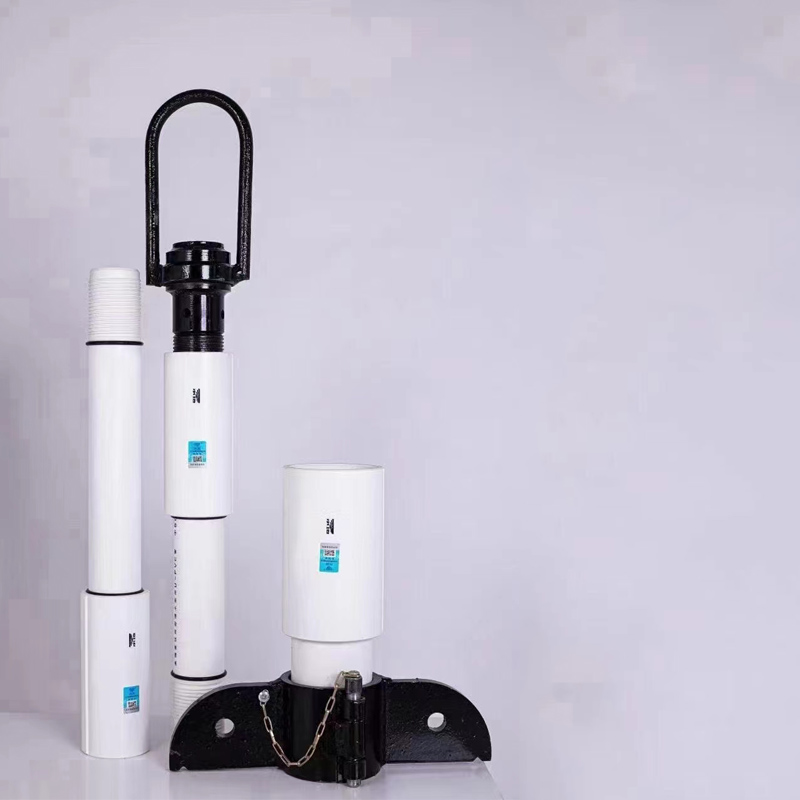Nov . 27, 2024 05:36 Back to list
Comprehensive Guide to Various PVC Pipe Manufacturing Processes and Applications
All Types of PVC Pipes A Comprehensive Overview
Polyvinyl Chloride (PVC) pipes have become an essential element across various industries due to their versatility, durability, and cost-effectiveness. From residential plumbing to industrial applications, PVC pipes are utilized widely due to their unique properties. This article will delve into the different types of PVC pipes manufactured in factories, their applications, and the advantages they offer.
Types of PVC Pipes
1. Rigid PVC Pipes (uPVC) Rigid PVC pipes, also known as unplasticized PVC (uPVC) pipes, are commonly used in drainage and sewerage systems. Their strength and rigidity make them an excellent choice for structural applications. Rigid PVC is resistant to corrosion and does not rust, ensuring longevity and low maintenance costs. These pipes are often employed in construction, telecommunications, and electrical conduit systems.
2. Flexible PVC Pipes Unlike their rigid counterparts, flexible PVC pipes can bend and twist without breaking. This flexibility allows them to be used in various applications, such as irrigation and landscape drainage systems. They are also favored in swimming pool installations, where flexibility allows for intuitive water flow management. The lightweight nature of flexible PVC makes it easy to handle and install.
3. PVC Pressure Pipes Pressure pipes are designed to handle high-pressure applications, making them suitable for water distribution systems, both industrial and municipal. They are available in various sizes and pressure ratings, catering to diverse needs. The excellent strength-to-weight ratio of PVC pressure pipes enhances their reliability and performance even under challenging conditions.
4. PVC Drainage Pipes Specifically designed for drainage systems, PVC drainage pipes have a smooth interior surface that helps prevent clogging, promoting efficient flow of water. They are often used in residential and commercial drainage applications, stormwater management, and waste disposal systems. Their lightweight and chemical resistance properties make them a popular choice among builders and contractors.
5. PVC Electrical Conduits Electrical conduits made from PVC provide a protective pathway for electrical wiring. They guard against moisture, chemical exposure, and physical damage, making them ideal for both indoor and outdoor installations. PVC conduits are available in various sizes and can be easily cut and joined, making them practical for a range of electrical applications.
all types of pvc pipes factory

Advantages of PVC Pipes
1. Durability One of the primary advantages of PVC pipes is their durability. They are resistant to corrosion, chemicals, and physical impact, ensuring a long service life. This property significantly reduces the need for replacements and repairs, offering significant cost savings over time.
2. Lightweight PVC pipes are considerably lighter than traditional materials like metal or concrete, simplifying transportation and installation. This lightweight nature makes them ideal for applications where handling and maneuverability are crucial.
3. Cost-Effectiveness The manufacturing process of PVC pipes is relatively inexpensive, and their longevity reduces overall lifetime costs. Additionally, the lower maintenance requirements of PVC pipes further contribute to their cost-effectiveness.
4. Easy Installation With a range of jointing methods available, including solvent welding, PVC pipes can be quickly and easily installed. This characteristic is particularly beneficial for contractors who aim to reduce labor costs and installation times.
5. Environmental Considerations Many PVC pipes are now produced with sustainability in mind, making them recyclable at the end of their life cycle. Innovative factories are adopting eco-friendly practices, ensuring that the production and disposal of PVC pipes have a minimized environmental impact.
Conclusion
PVC pipes are an indispensable component of modern infrastructure, with various types manufactured to meet specific needs. Their durability, cost-effectiveness, and ease of installation make them a preferred choice for a wide range of applications. As the industry evolves, we can expect further advancements in PVC pipe technology, enhancing their capabilities and sustainability. Whether for residential use or industrial applications, investing in quality PVC pipes is essential for anyone looking to ensure a reliable and efficient plumbing or drainage system.
-
High-Quality PVC Borehole Pipes Durable & Versatile Pipe Solutions
NewsJul.08,2025
-
High-Quality PVC Perforated Pipes for Efficient Drainage Leading Manufacturers & Factories
NewsJul.08,2025
-
High-Quality PVC Borehole Pipes Durable Pipe Solutions by Leading Manufacturer
NewsJul.08,2025
-
High-Quality PVC Borehole Pipes Reliable PVC Pipe Manufacturer Solutions
NewsJul.07,2025
-
High-Quality UPVC Drain Pipes Durable HDPE & Drain Pipe Solutions
NewsJul.07,2025
-
High-Quality Conduit Pipes & HDPE Conduit Fittings Manufacturer Reliable Factory Supply
NewsJul.06,2025

